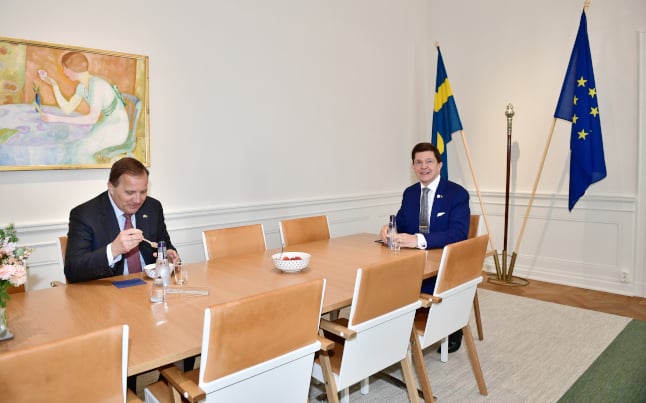Unless Löfven asks for more time or abandons his bid, a vote could be held in parliament on Wednesday at the earliest.
The speaker of parliament, Andreas Norlén, handed the torch to Löfven last week, after opposition rival Ulf Kristersson of the Moderate Party failed in his attempts to form a new government.
This came after Löfven lost a vote of no confidence on June 21st, and resigned, thereby triggering a round of talks between party leaders and the speaker, who has the role of proposing potential prime minister candidates based on an assessment of what a government backed by a parliamentary majority could look like.
If all members of parliament vote according to the party line, the parties that will vote against Löfven (the Moderates, Christian Democrats, Liberals and Sweden Democrats) have 174 votes in total, which is one vote short of a majority.
All Löfven needs is 175 MPs to either vote for him or abstain.
You can catch up with Sweden’s government crisis in The Local’s articles below, or by listening to our podcast Sweden in Focus.



 Please whitelist us to continue reading.
Please whitelist us to continue reading.
Member comments